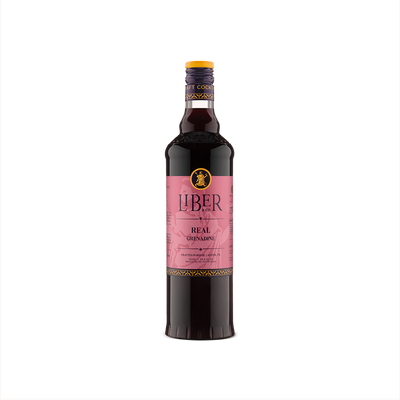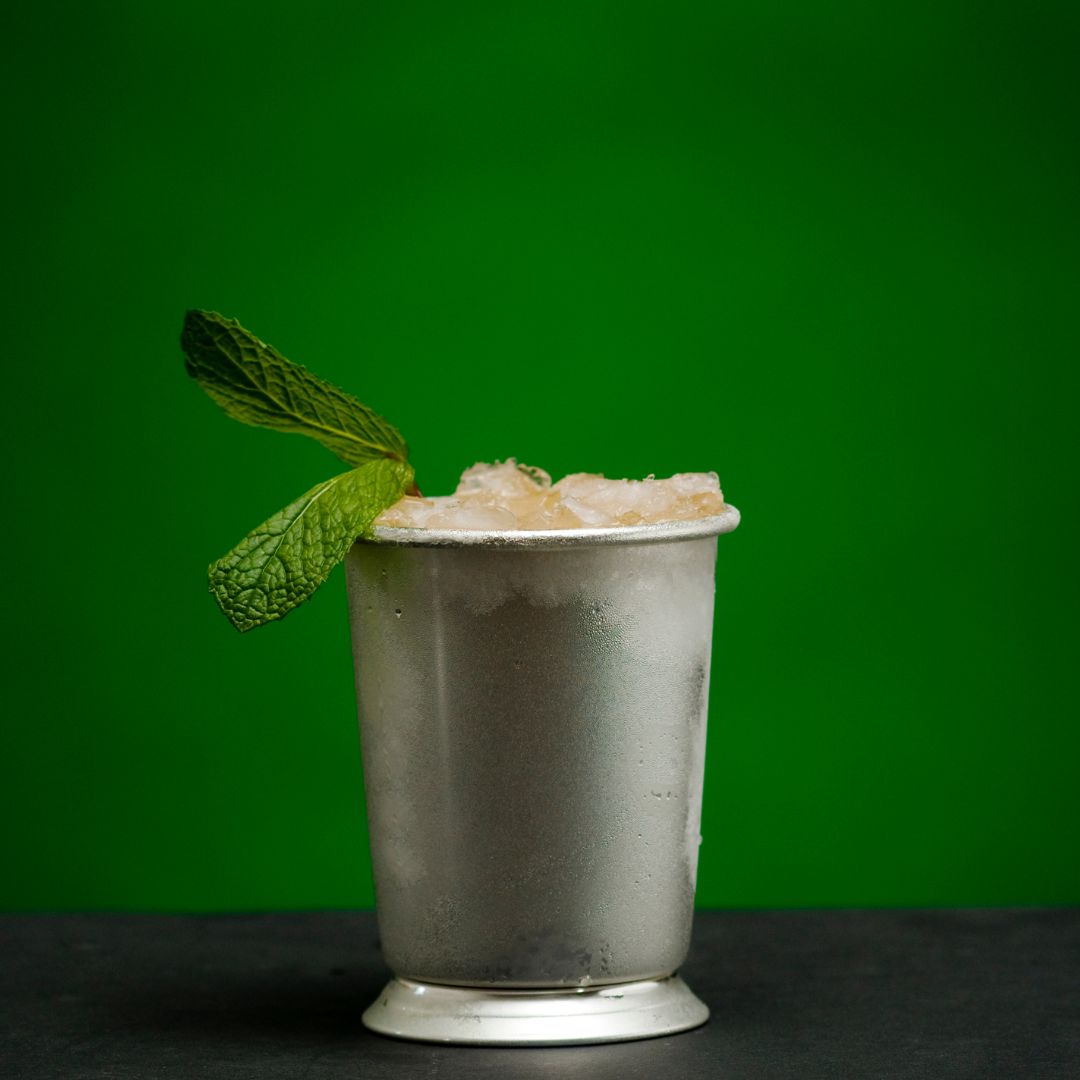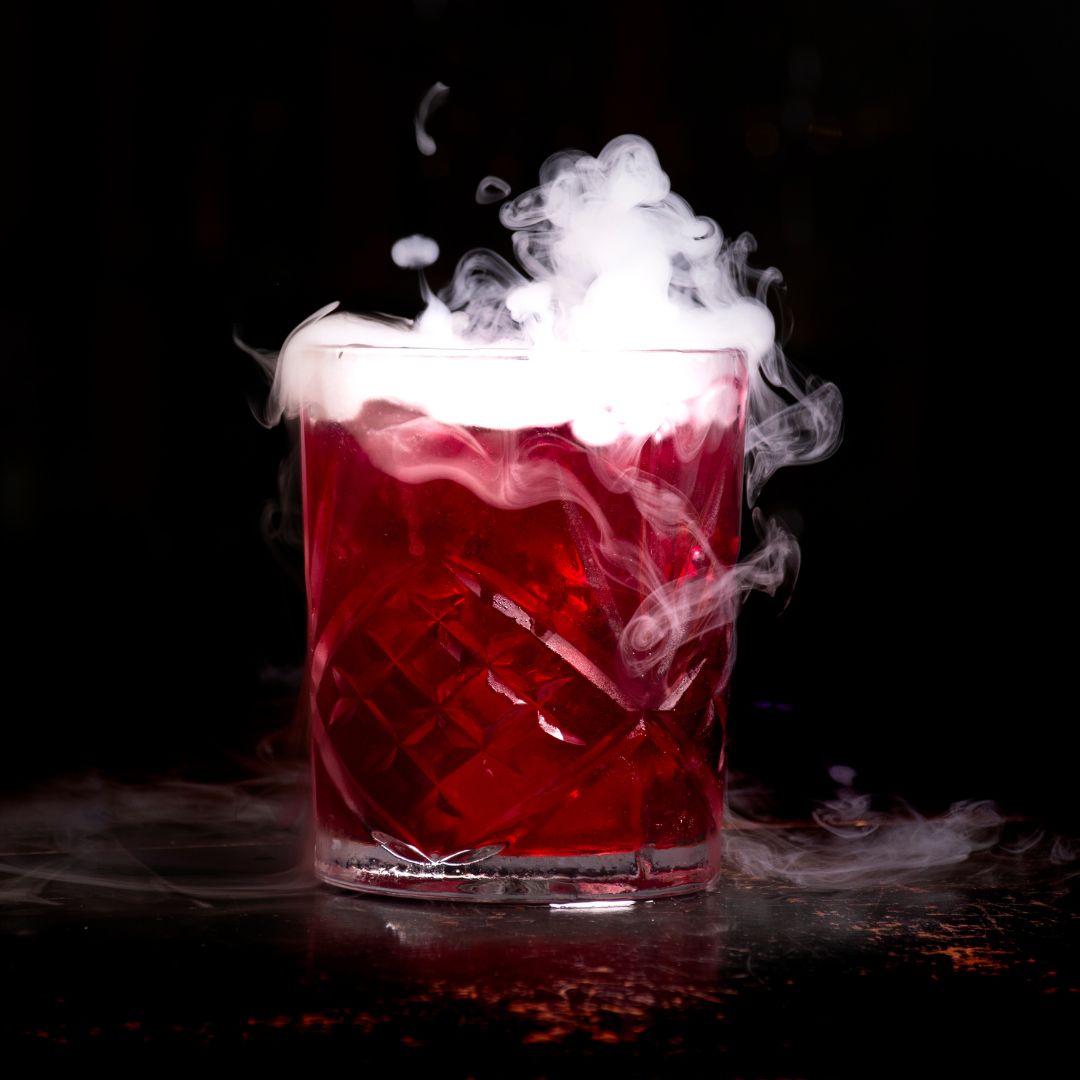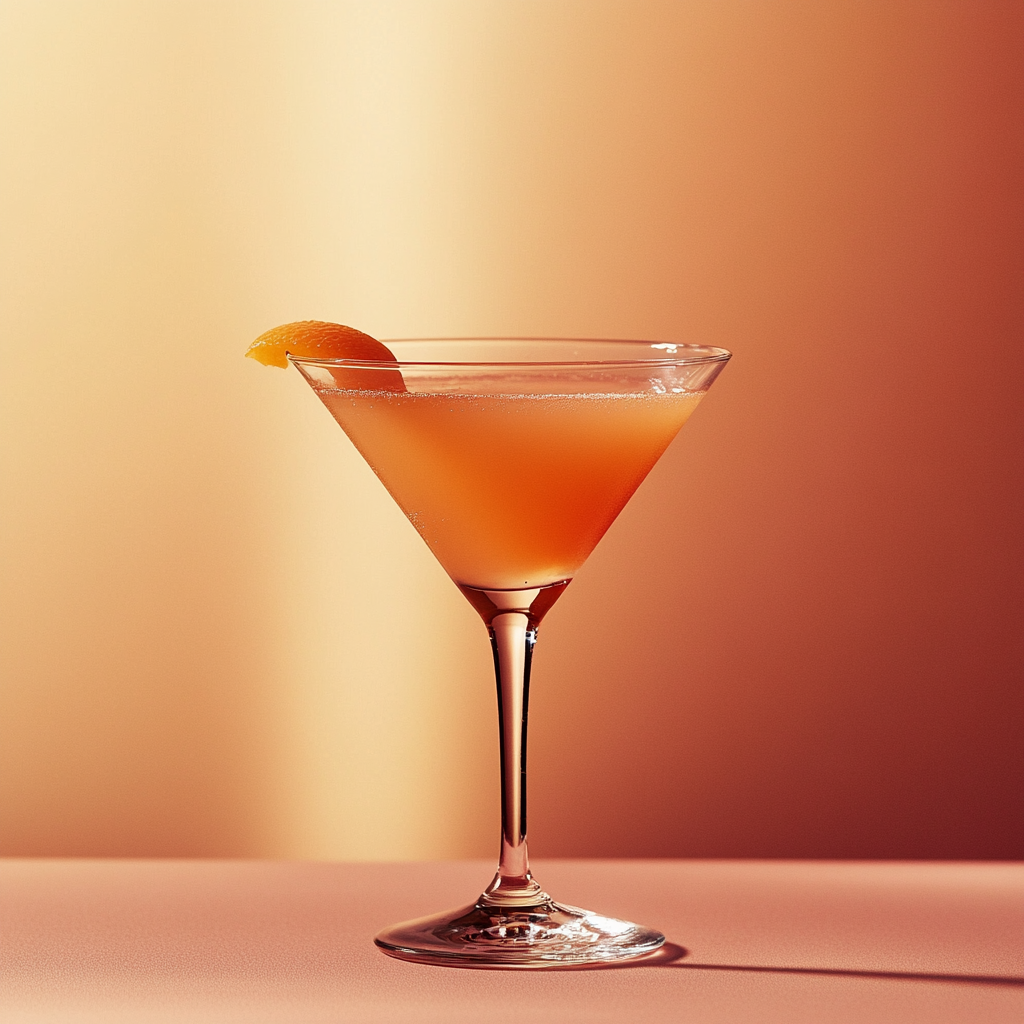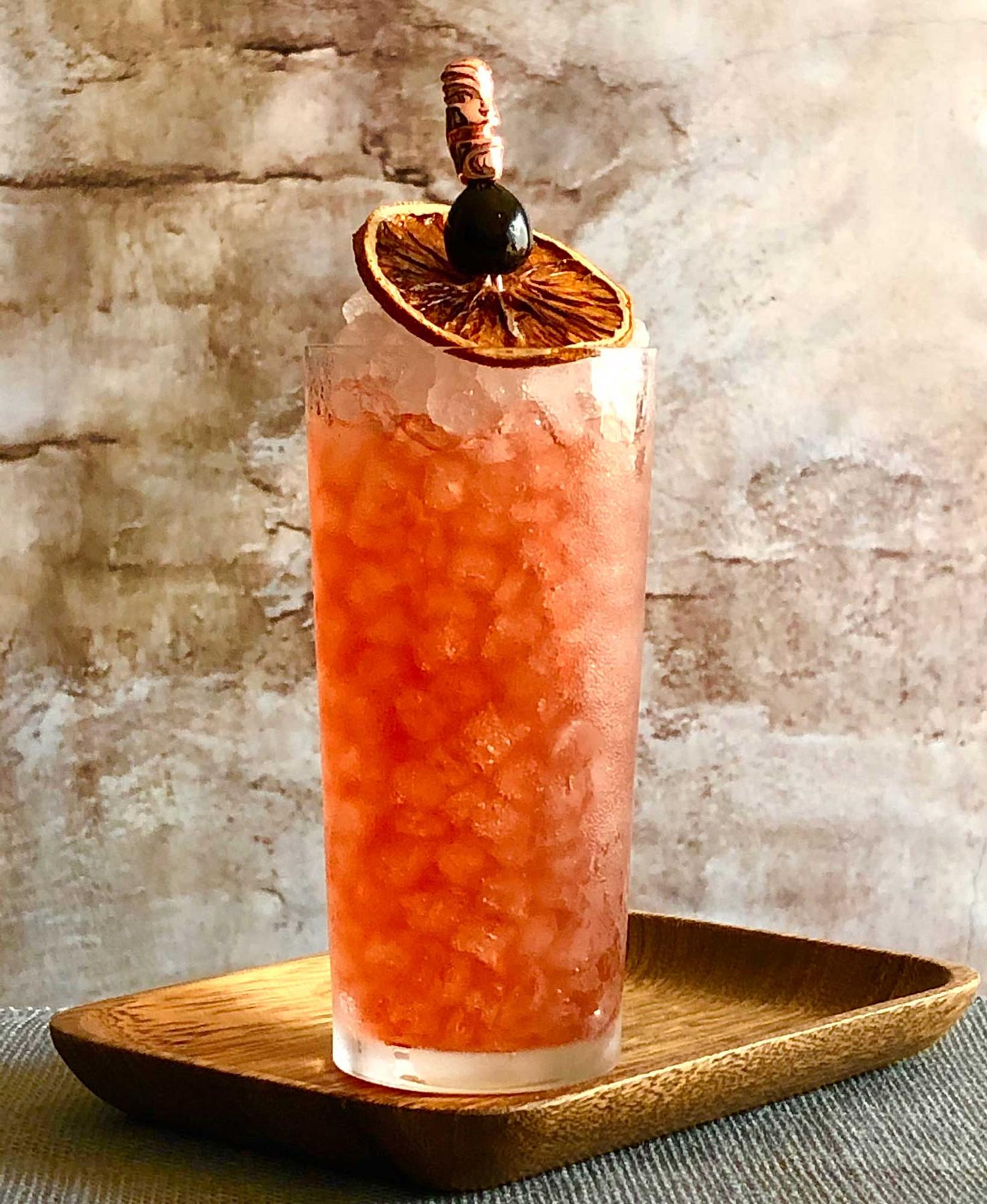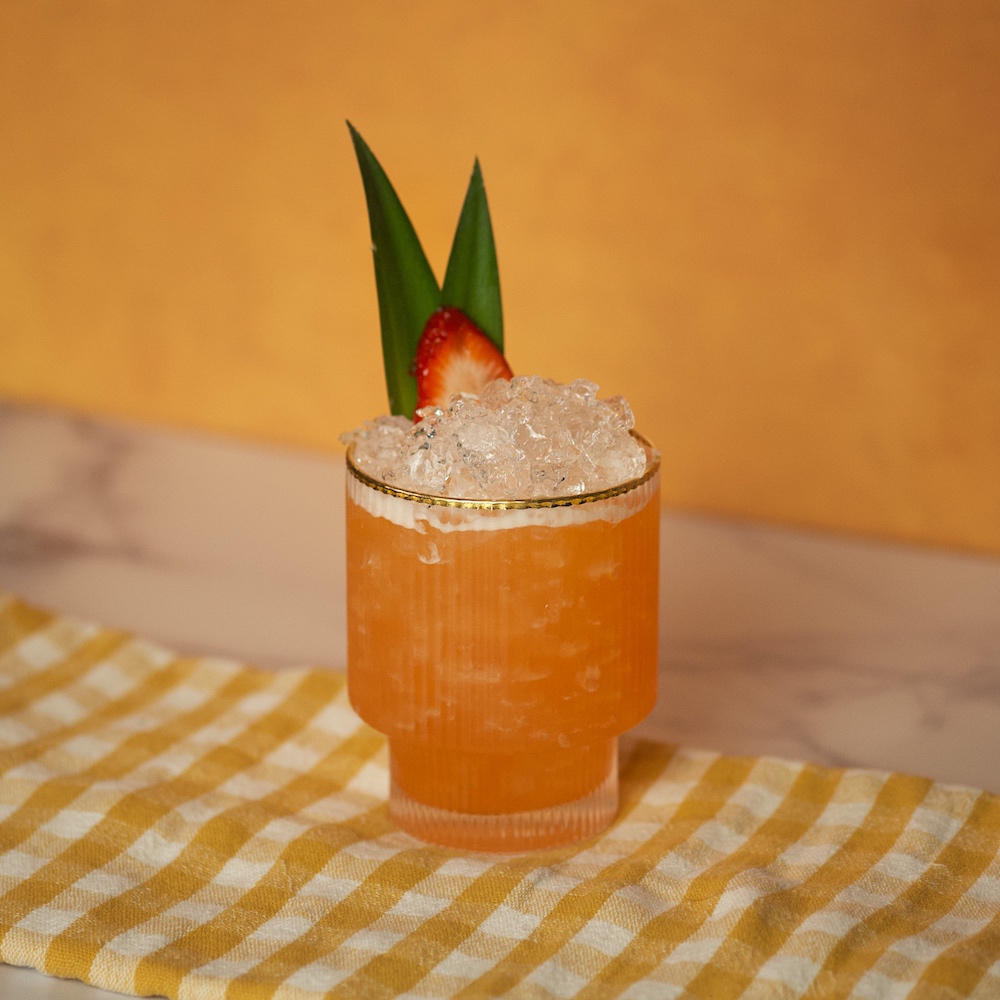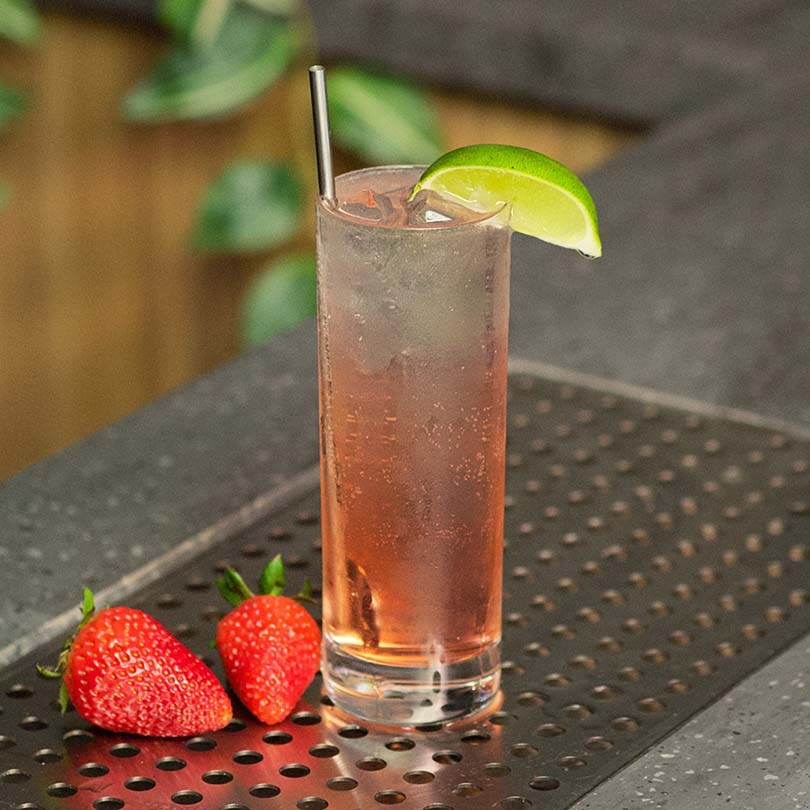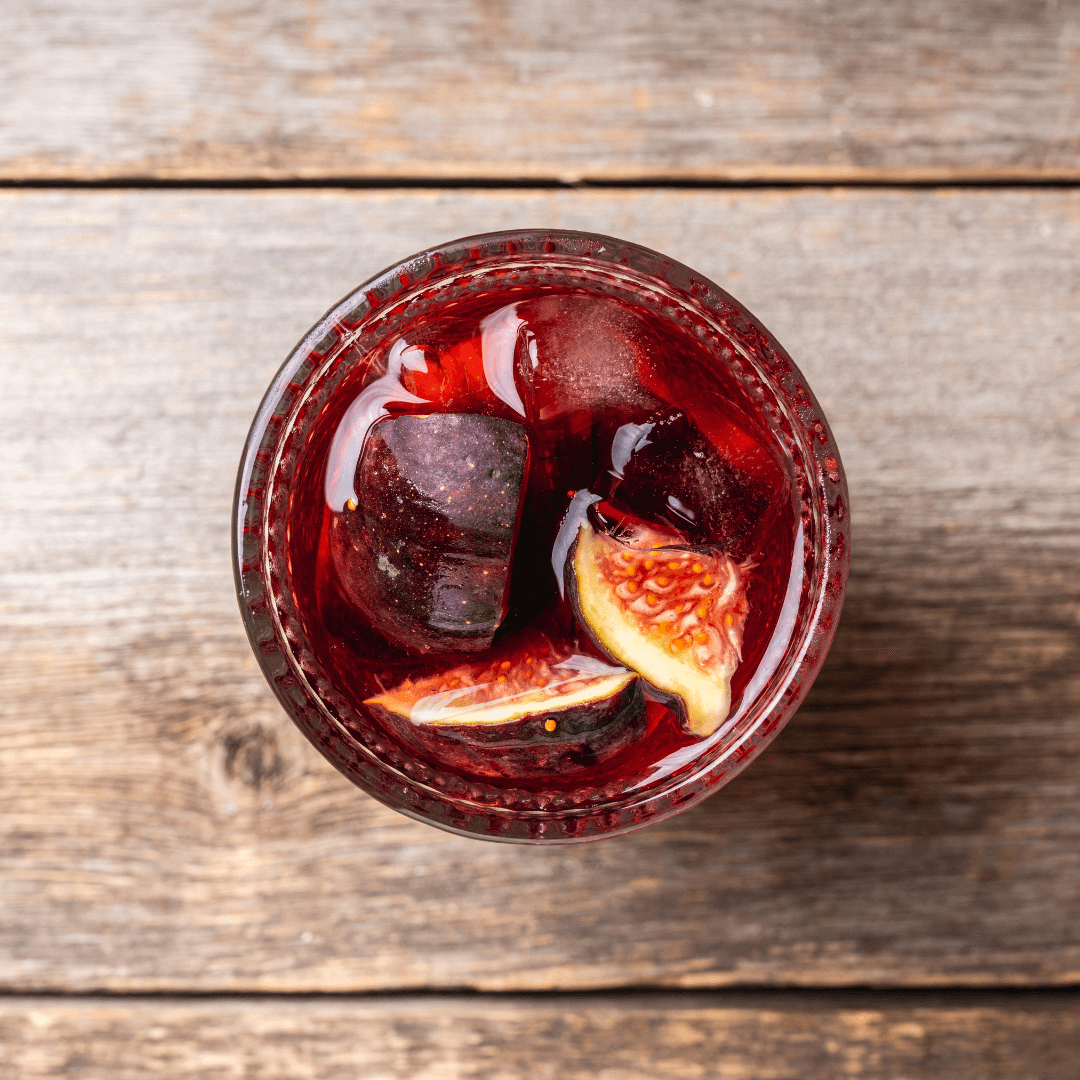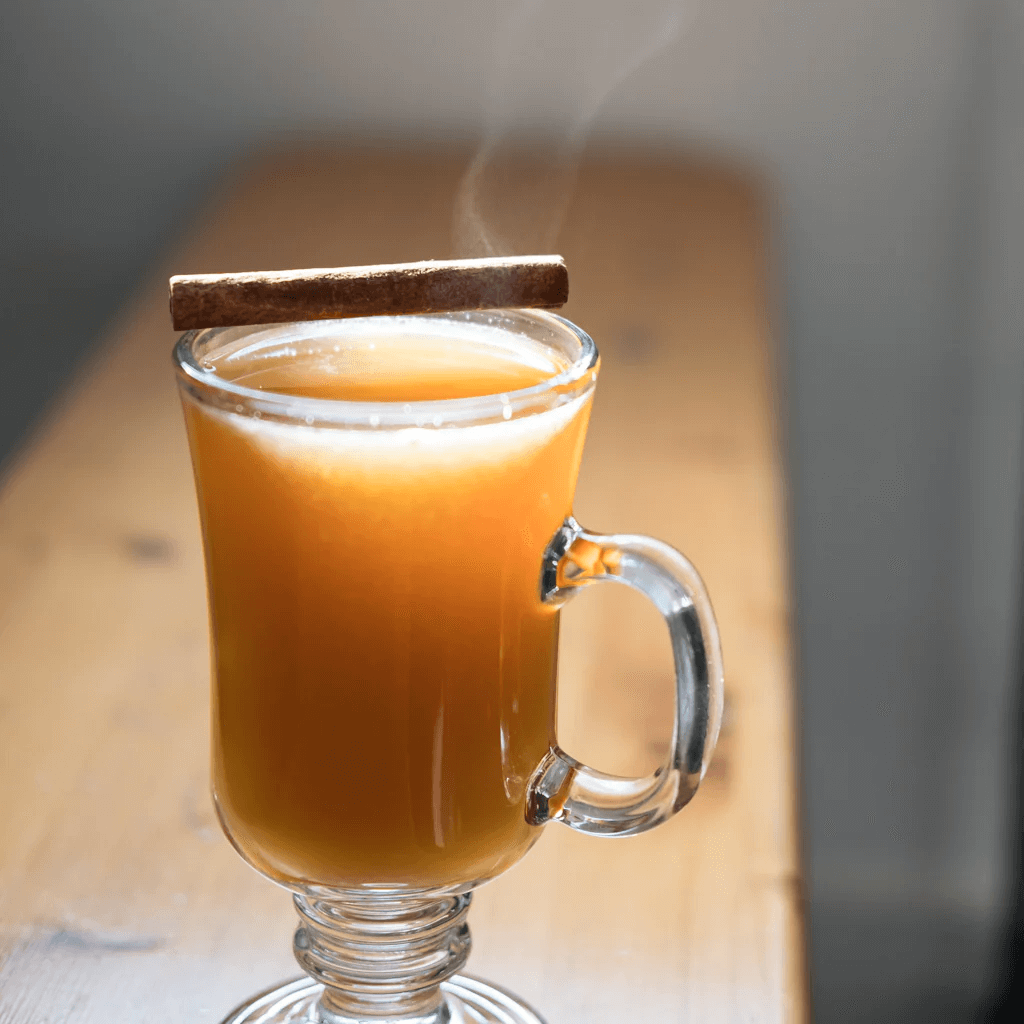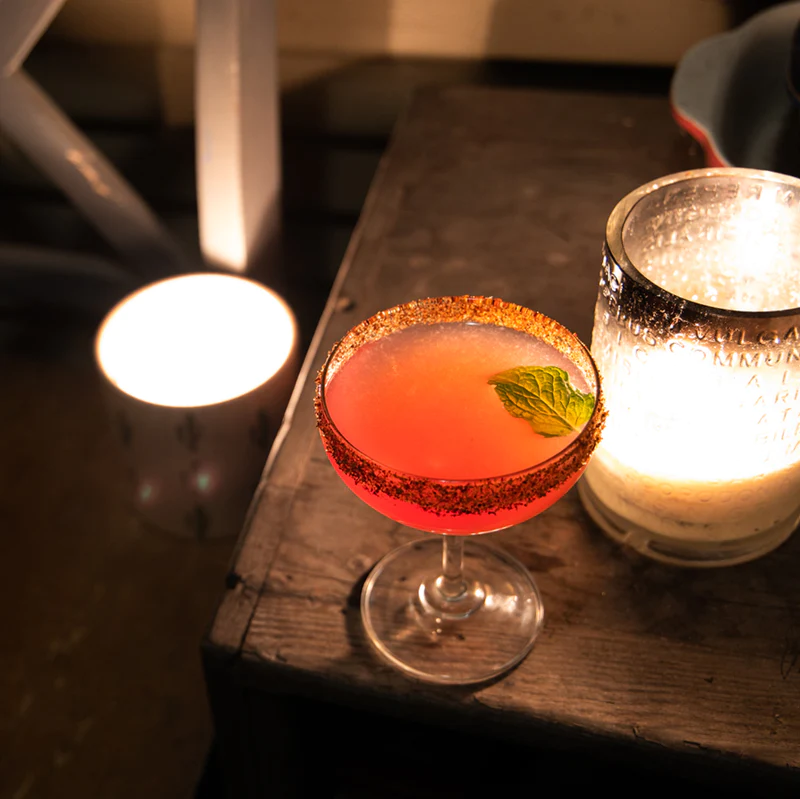
Texas Sunburn
Ingredients:
-
1.5 oz of mezcal, like Pierde Almas La Puritita Verdá Mezcal
-
.5 oz Chareau Aloe Liqueur
-
.5 oz Ancho Chile Reyes Liqueur
-
.5 oz Liber & Co Real Grenadine Syrup
-
.75 oz freshly squeezed lemon juice
Directions:
- Add all ingredients to a cocktail shaker with cubed ice.
- Shake hard for 20 seconds.
- Strain into a chilled coupe, rimmed with tajin if you’re feeling extra!
- Garnish with a mint leaf

